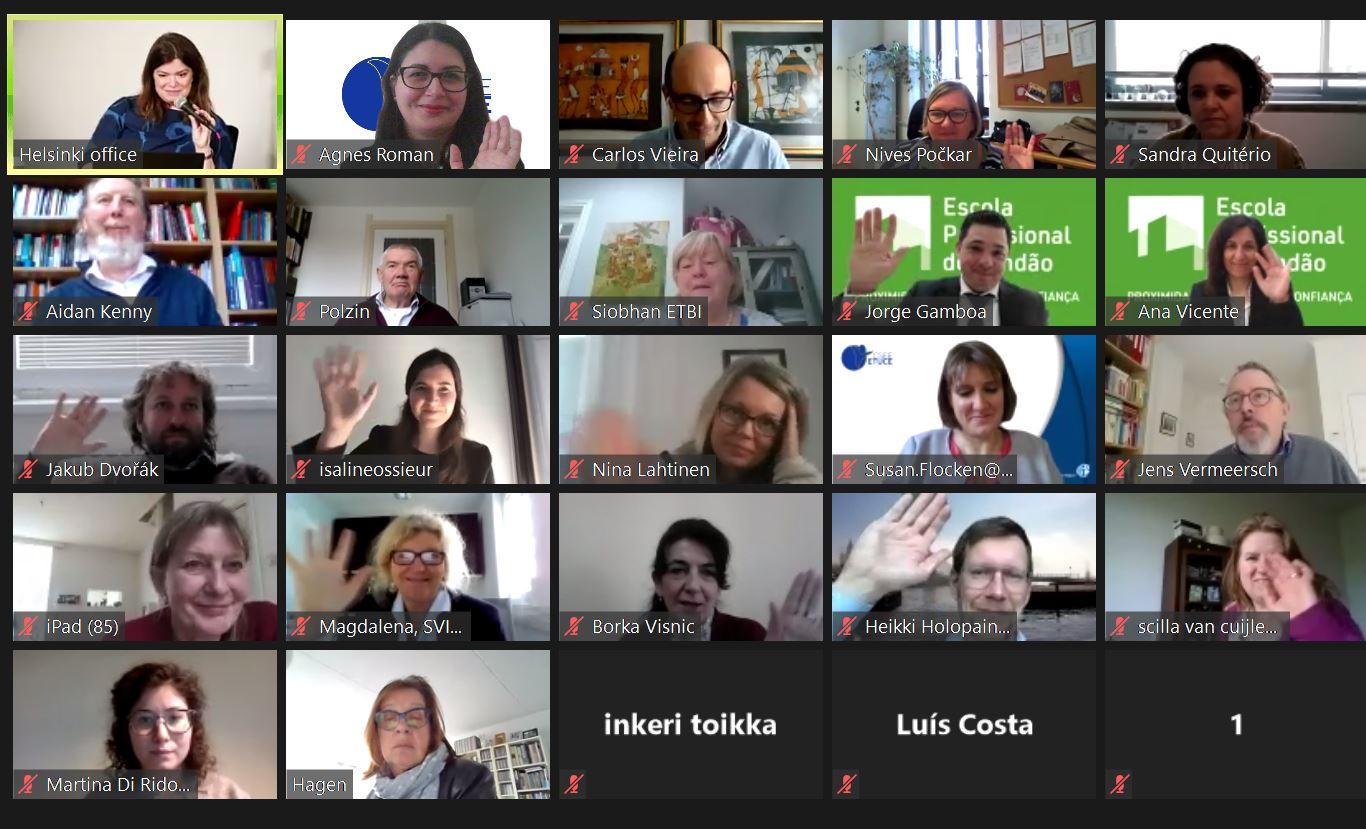Education social partners discussed the Finnish VET system reform
Published:
ETUCE and education trade unions which organise VET teachers and trainers and education employers organisations, members of EFEE discussed on 23 March 2021 about lessons learnt from the vocational education and training (VET) reform and social dialogue in Finland. The online event was jointly organised by the Finnish social partners Sivista and OAJ as part of the project ‘Lifelong Learning for All: Social Partners in Education promoting quality and inclusive VET to enhance lifelong learning for all’, led by MBO-Raad in partnership with ETUCE and EFEE.
A representative of the Finnish National Agency for Education gave participants an overview of the Finnish VET system, underlining the well-developed social dialogue between the ministry and the education social partners, the high qualification and motivation of teachers, and the attractiveness of VET system as it offers flexible pathways for the learners. As the result of a comprehensive reform of the education and VET sector in 2018, the Finnish VET system abolished the distinction between vocational education and training for young people and adults, putting now more emphasis on the learning outcomes-based approach, training in the workplace and mixed classes. Furthermore, to enhance the level of education and wellbeing of people as well as to reduce the learning gaps, Finland extended compulsory education until to age 18. This reform that entered into force in 2021, also guarantees free access to education and it is free of charge.
Nina Lahtinen, Director of the Finnish teachers’ union, OAJ, described the active contribution of the education social partners in shaping and implementing the reform through social dialogue with the government and other stakeholders. The role of education trade unions was crucial to guarantee the quality and requirement of teacher qualification for those who wish to become VET teachers and the attractiveness of the VET teaching profession. OAJ managed to obtain a reform in the VET salary system that now does not include only teaching but sets a fixed amount of annual working hours, leaving teachers the flexibility to agree with the employers the detailed organisation of their tasks, including their continuous professional development. As current challenges for implementing the reform, OAJ is concerned about the lack of public funding to VET due to the COVID-19 crisis and how to ensure the students’ rights to learning.
After getting hands-on testimonies from a Finnish VET school, including insights on the impact of the COVID-19 crisis on VET education, participants highlighted the main takeaways from the Finnish case-study. Amongst the suggestions, it was underlined the high level of trust based on effective social dialogue is one of the key elements of the successful Finnish system. The joint effort for continuous innovation of the VET system to ensure the quality of VET and the importance of having well-trained and motivated teachers as well as effective and sustainable investment in the VET sector were also takeaway for the participants from the event. Looking at the emerging challenges for the future of the VET system, it was underlined that further discussions are needed between the education social partners on the teaching practical subjects online, the use of artificial intelligence in VET, and the protection of data and copyright of VET teachers’ and students’ education materials.
Read more:
Lifelong Learning for All: Social Partners in Education promoting quality and inclusive VET to enhance lifelong learning for all’ project page